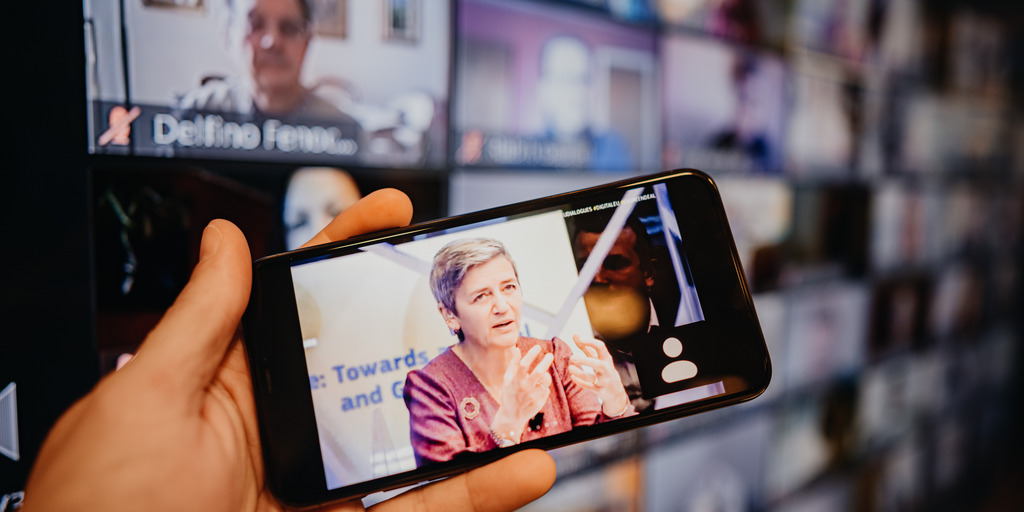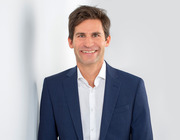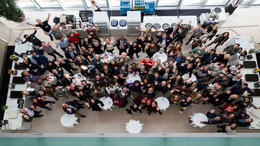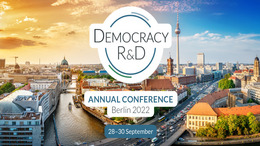Fred is nervous. It’s his first video conference ever. He switched his camera on, and the microphone, too. And now? “Where it says 'end meeting' at the bottom right, should I just click on it?” he asks. “No, the interpreter function is on the left,” comes the quick response from the digital support. That is good; otherwise, the transnational, multilingual citizens’ dialogue would have ended prematurely for Fred. The video newcomer takes a deep breath. Problem solved. That's why Fred is now chatting jovially. “I come from the part of Germany that is black and yellow,” he says. “Black and yellow like Borussia.” Fred is from Dortmund. And he’s a football fan. But this week he's a European.
To be more precise, he is one of the 100 randomly selected Europeans, who will be discussing the future of the European Union in the course of three days between 27 – 30 October. The Bertelsmann Stiftung, together with the European Commission, has invited citizens to take part in the Digital European Citizens' Dialogue. Young, old, male, female, people from both rural and urban areas, and with different education backgrounds—the diversity is as colourful as Europe is. The participants are from Denmark, Germany, Ireland, Italy and Lithuania. And they talk non-stop about the three hot topics: how to create a greener, more digital and more democratic Europe.


![[Translate to English:] Fahnen Hierlemann](/fileadmin/files/_processed_/c/e/csm_1035672943201027_besimmazhiqi-2_c66bb191b7.jpg)


![[Translate to English:] Menschen diskutieren beim Bürgerdialog](/fileadmin/files/_processed_/b/e/csm_1045556754Europawerkstatt-9302_1069ead8ad.jpg)


